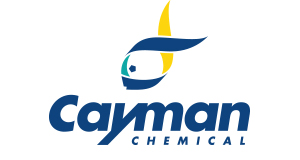PPAD (Porphyromonas gingivalis) Polyclonal Antibody
PPAD (Porphyromonas gingivalis) Polyclonal Antibody
Artikelnummer
CAY37598
Verpackungseinheit
500 µg
Hersteller
Cayman Chemical
Verfügbarkeit:
wird geladen...
Preis wird geladen...
Formulation: 500 µg of protein A-purified polyclonal antibody
Immunogen: Recombinant PPAD (P. gingivalis)
Shelf life (days): 1095
Notes: Porphyromonas gingivalis (P. gingivalis) peptidyl arginine deiminase (PPAD) is a bacterial enzyme and virulence factor secreted by P. gingivalis, an oral bacterium involved in the progression of periodontal disease.{66368,66369} It is composed of a pro-peptide sequence, a catalytic domain, an immunoglobulin-like (Ig-like) domain, and a C-terminal domain, but the mature protein contains only the catalytic domain and Ig-like domain.{66369} It is expressed on the bacterial outer membrane. PPAD and proteolytic enzymes, such as arginine gingipain (RgpB), are released from P. gingivalis to break down proteins, which it uses as an energy source.{66368,66369} RgpB cleaves proteins at arginine residues, and PPAD specifically deiminates the resulting C-terminal arginine residues of both bacterial and host proteins to citrulline, a process known as citrullination.{66368,35731,66369} Unlike mammalian PADs, PPAD does not require calcium and can convert free L-arginine into L-citrulline in addition to deaminating these residues at the C-terminus of proteins and peptides.{66370} A ppad deletion mutation (Δ8820) in P. gingivalis strain 381 increases biofilm formation, alters biofilm architecture, and induces the secretion of protein aggregates.{66368} Mice infected with a PPAD deficient strain of P. gingivalis have reduced periodontal inflammation and similarly infected mice in a model of collagen-induced arthritis have reduced bone erosion.{66371} Cayman’s PPAD (Porphyromonas gingivalis) Polyclonal Antibody can be used for ELISA, flow cytometry (FC), immunofluorescence (IF), and Western blot (WB) applications. The expected WB detection size is approximately 62 kDa from P. gingivalis samples.
Immunogen: Recombinant PPAD (P. gingivalis)
Shelf life (days): 1095
Notes: Porphyromonas gingivalis (P. gingivalis) peptidyl arginine deiminase (PPAD) is a bacterial enzyme and virulence factor secreted by P. gingivalis, an oral bacterium involved in the progression of periodontal disease.{66368,66369} It is composed of a pro-peptide sequence, a catalytic domain, an immunoglobulin-like (Ig-like) domain, and a C-terminal domain, but the mature protein contains only the catalytic domain and Ig-like domain.{66369} It is expressed on the bacterial outer membrane. PPAD and proteolytic enzymes, such as arginine gingipain (RgpB), are released from P. gingivalis to break down proteins, which it uses as an energy source.{66368,66369} RgpB cleaves proteins at arginine residues, and PPAD specifically deiminates the resulting C-terminal arginine residues of both bacterial and host proteins to citrulline, a process known as citrullination.{66368,35731,66369} Unlike mammalian PADs, PPAD does not require calcium and can convert free L-arginine into L-citrulline in addition to deaminating these residues at the C-terminus of proteins and peptides.{66370} A ppad deletion mutation (Δ8820) in P. gingivalis strain 381 increases biofilm formation, alters biofilm architecture, and induces the secretion of protein aggregates.{66368} Mice infected with a PPAD deficient strain of P. gingivalis have reduced periodontal inflammation and similarly infected mice in a model of collagen-induced arthritis have reduced bone erosion.{66371} Cayman’s PPAD (Porphyromonas gingivalis) Polyclonal Antibody can be used for ELISA, flow cytometry (FC), immunofluorescence (IF), and Western blot (WB) applications. The expected WB detection size is approximately 62 kDa from P. gingivalis samples.
| Artikelnummer | CAY37598 |
|---|---|
| Hersteller | Cayman Chemical |
| Hersteller Artikelnummer | 37598-500 |
| Verpackungseinheit | 500 µg |
| Mengeneinheit | STK |
| Klonalität | Polyclonal |
| Methode | Immunofluorescence, Western Blotting, ELISA, Flow Cytometry, Reinstoffe |
| Wirt | Rabbit |
| Produktinformation (PDF) | Download |
| MSDS (PDF) | Download |

 English
English










